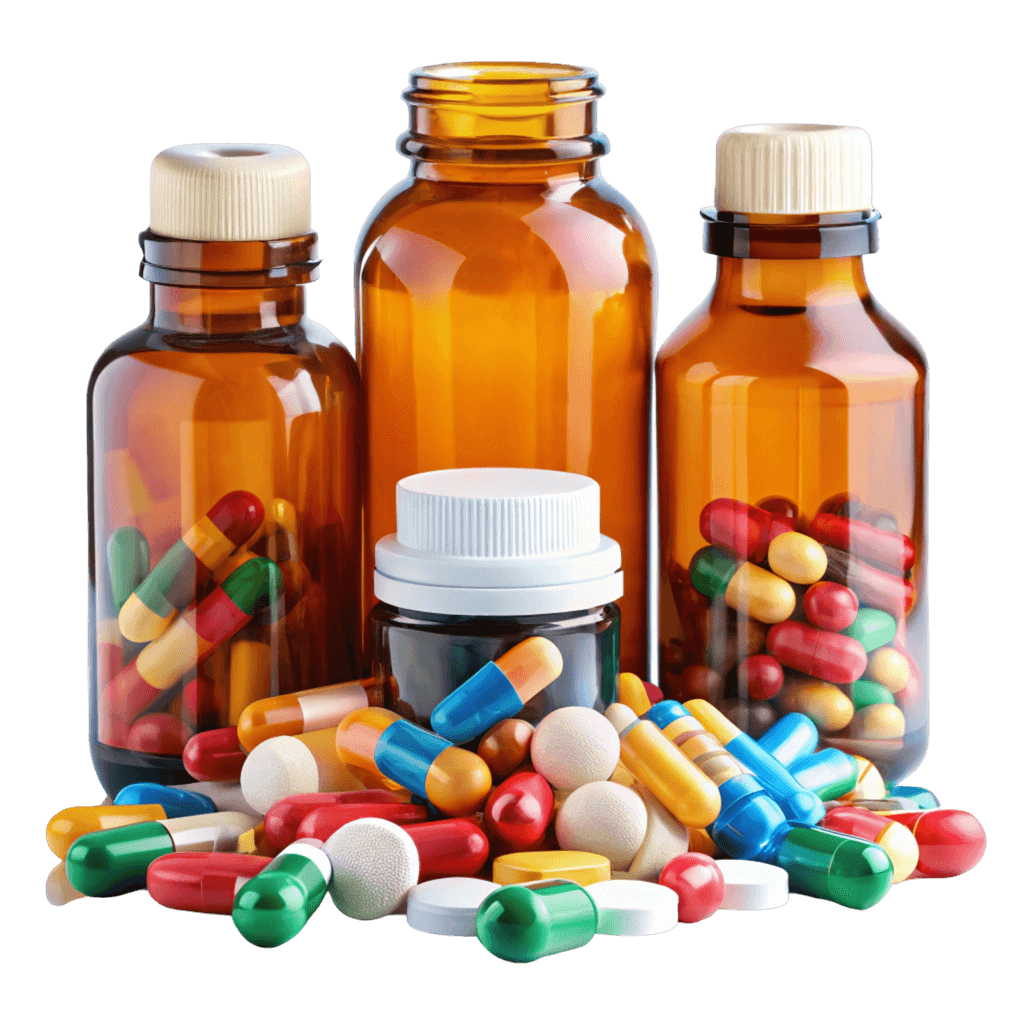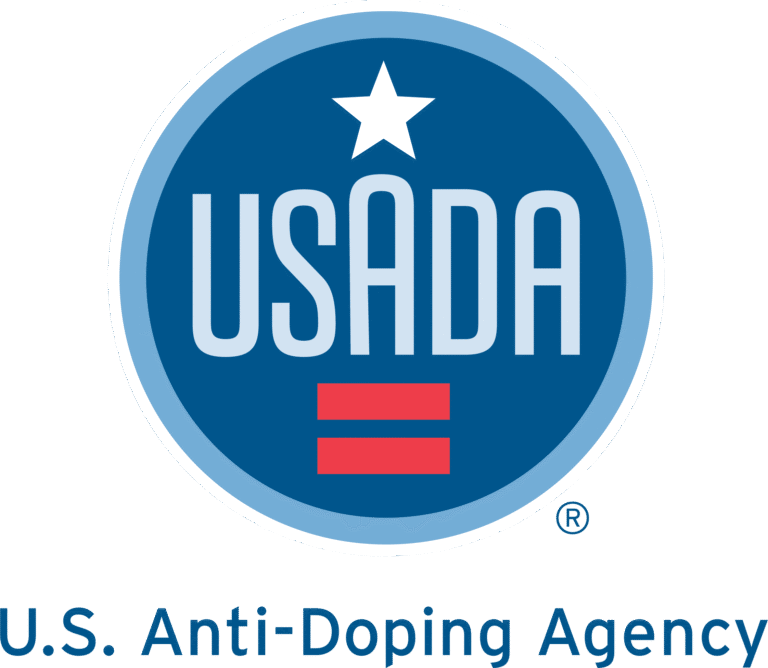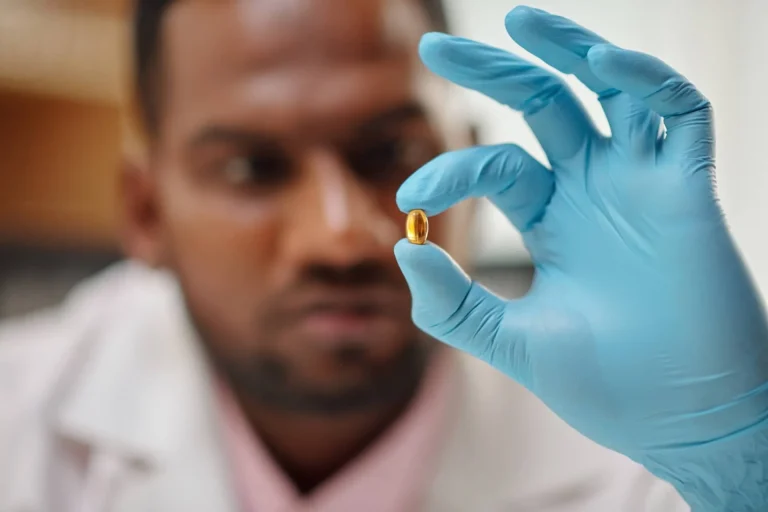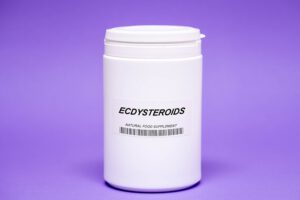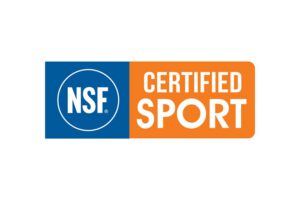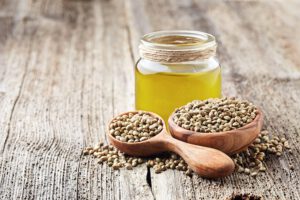Supplement Connect is USADA’s educational resource to help you understand the risks of dietary supplements, learn to spot unsafe products, and take practical steps to protect your health and sports eligibility. USADA has a long history of working to improve dietary supplement safety, and while supplements may promise big benefits, they can carry serious risks, even if sold in trusted stores or recommended by people you trust.
If you choose to use dietary supplements in spite of the risks, you can reduce your risk by using only third-party certified products. USADA recommends NSF Certified for Sport® as the best way to reduce your risk.
While no resource can protect you completely, Supplement Connect will help you:
Realize, Recognize, and Reduce
Your Risk
It’s easy to assume that if a product is on a store shelf, then it must be safe. But dietary supplements are regulated in a post-market manner, meaning the Food and Drug Administration (FDA) does not evaluate the contents or effects of supplements before they are sold. A harmful or illegal dietary supplement can stay on store shelves for a long time, sometimes even years, before the FDA can remove them.
Because of this, it’s important to be an informed consumer and understand the risks before deciding to use any dietary supplement.
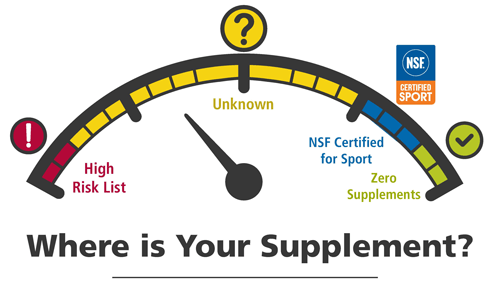
Where is Your Supplement?
Supplement Risk Assessment
Dietary supplements are regulated in a post-market fashion, which means that no regulatory body approves the accuracy of the label or safety of the contents before they are sold to consumers. As such, no dietary supplement can be guaranteed to be 100 percent risk-free. If athletes choose to use supplements despite the risks, USADA has always recommended that athletes use only dietary supplements that have been certified by a third-party program that tests for substances prohibited in sport. USADA currently recognizes NSF Certified for Sport® as the program best suited for athletes to reduce the risk from supplements.
For more information, visit our Athlete Advisory and NSF FAQ.

High Risk List
High Risk Supplements
The Supplement Connect High Risk List shows examples of dietary supplements that could cause anti-doping issues. It’s meant to help athletes recognize on their own which products might be risky. IMPORTANT: This list is not complete. Supplement companies can—and often do—change their product formulas, names, labels, or even flavors without notice. That means the version of a product you see here may not match what’s on shelves or online right now.
Additional Resource
Review the FDA’s consumer updates on dietary supplements.
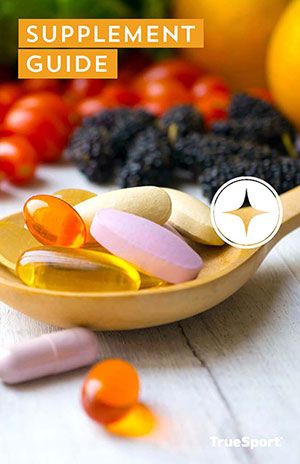
Supplement Guide
Who is this for?
Athletes and their Support Teams
What’s inside?
Many athletes believe they need dietary supplements to perform at their best, but this trust in supplements is undeserved. While it’s true that some supplements can be helpful in some circumstances, people regularly overestimate their benefits and safety.
Many use them without understanding the supplement industry or talking to a dietitian, and they instead rely on advertisements and labeling. However, people can’t trust what many supplements claim to contain or deliver because of ineffective regulation of the supplement industry.
The Supplement Guide is designed to help you decide if the potential benefits of dietary supplements outweigh those risks, and if so, how you can better choose a low-risk product.
Supplement News
The Simple Truth:
Decoding the Dietary Supplement Industry
When it comes to dietary supplements, you unfortunately can’t tell whether a product is safe or not just by looking at the label. Most vitamins, minerals, fish oil, and other supplements containing nutrients are probably just fine, but supplements are not evaluated or approved by FDA before they are sold, so it’s impossible to know for sure. Learn more about this industry.
At first glance, dietary supplements look the same. They seem safe and healthy, but just because the label says a product is a dietary supplement, that doesn’t mean it’s safe. Unfortunately, you can’t tell whether a product is safe or not just by looking at the label. Most vitamins, minerals, fish oil, and other supplements containing nutrients are probably just fine, but supplements are not evaluated or approved by FDA before they are sold. Although it is rare for vitamins or minerals to be contaminated with drugs, there has been at least one case of a vitamin containing an anabolic steroid.
At the other extreme are products that contain drugs, stimulants, anabolic steroids, or other hormones. Even though these are not technically dietary supplements, many of them are labeled as supplements. For example, body-building products sometimes contain anabolic steroids or Selective Androgen Receptor Modulators, known as SARMs, or other hormones. Some pre-workout or energy products contain illegal stimulants like DMAA, ephedra, or other amphetamine-like stimulants. Weight loss products might contain prescription drugs like sibutramine, or hormones, like human chorionic gonadotropin, also known as hCG. All natural or herbal sexual enhancement products might contain hormones or Viagra-like drugs. Products like these can harm your health and career, but they’re for sale online, in some nutrition stores, and they’re labeled as dietary supplements.
When you pick up a supplement, especially one that promises performance enhancement, you don’t know if it belongs in the “Mostly O.K.” pile or in the “Dangerous” pile. After all, two products might look the same, but one might contain just amino acids and other legitimate ingredients, while the other also contains anabolic steroids. Because of this, FDA has issued a warning about certain categories of supplements: body building products, weight loss products, and sexual enhancement products. Be extremely careful when considering a supplement in one of these categories. We strongly recommend that you avoid products in these categories.
Even when FDA tests supplements and finds dangerous ingredients, companies sometimes refuse to recall them. Sometimes, they simply repackage their product and continue selling it under a new name. Just because a product is on a store shelf doesn’t mean it is safe. You need to do your research and be an informed consumer. The dietary supplement industry is enormous. Supplements that appear to be safe could actually be dangerous products in disguise. If you use dietary supplements without doing your research, you may be taking serious risks with your health and your career. Please visit USADA’s Supplement 411 for more information about dietary supplements.
Frequently Asked Questions
Got Questions on Dietary Supplements?
Click on the question to drop down the answer.
Is my supplement safe to use?
At USADA, athletes often ask us, “Will my supplement make me test positive?” and “Is this supplement USADA-approved?” We also frequently hear, “My supplement contains ingredients A, B, and C…are these banned in sport? Can I go ahead and use this supplement?”
Unfortunately, the answer to all of these questions is that you always assume some risk of testing positive for prohibited substances when you use supplements because of how supplements are regulated. The Food and Drug Administration (FDA) does not analyze the safety, efficacy, or label accuracy of supplements before they are sold to consumers, which means that no one, including USADA, can look at a supplement label and tell you whether a product is safe and free from banned substances.
Additionally, it is well documented that some dietary supplements have been contaminated or spiked with performance-enhancing drugs, active pharmaceuticals, or research compounds.
USADA has seen examples of the following:
- The label lists a prohibited substance, but when the product is tested, the ingredient is not in the supplement.
- The label lists ingredients that are not prohibited, but testing shows the product contains a prohibited substance.
- Repeat testing reveals different ingredients in various batches of the same product.
Both the Supplement Connect High Risk List and the FDA Tainted Supplements webpage list MANY examples of tainted or spiked supplements. However, because of the number of supplements on the market, neither the Supplement Connect High Risk List nor the FDA Tainted Supplements List is an exhaustive, complete list. Both lists are constantly updated as additional high risk products are identified. Currently, there could be many hundreds of products on the market that would qualify for one or both of these lists that haven’t been identified yet!
Please be aware that you are taking a huge risk by assuming the label is accurate and using it to make a decision about whether to use a supplement. Just because a label does not list any prohibited substances, it would be wrong to conclude that the supplement is safe, and it would be wrong to conclude that the supplement is USADA-approved.
If athletes choose to use supplements despite the known risks, USADA has always recommended that athletes use only dietary supplements that have been certified by a third-party program that tests for substances prohibited in sport.
USADA currently recognizes NSF Certified for Sport® as the program best suited for athletes to reduce the risk from supplements.
How do I get my supplement USADA-approved?
USADA does not evaluate, certify, approve, or endorse any dietary supplement or any dietary supplement company.
Athletes: If athletes choose to use supplements despite the known risks, USADA has always recommended that athletes use only dietary supplements that have been certified by a third-party program that tests for substances prohibited in sport.
USADA currently recognizes NSF Certified for Sport® as the program best suited for athletes to reduce the risk from supplements.
Retailers: USADA does not have a process to evaluate your products and USADA does not provide consulting services of any type regarding the manufacture or marketing of dietary supplements.
Why can't I find my supplement on GlobalDRO.com?
GlobalDRO.com is designed to check the anti-doping status of medications and their ingredients, not supplements.
Supplements are excluded because labels are unreliable — they may be contaminated, mislabeled, or contain undeclared banned substances.
While individual ingredients like creatine or vitamin B may appear as “not prohibited” on Global DRO, that only applies to the ingredient itself, not to a supplement product that might also contain hidden prohibited substances.
Is my herbal supplement prohibited?
Plant-based ingredients can have many dozens or even hundreds of natural constituents, some of which may not even be identified or characterized yet. Although most herbs are safe to use in sport, some plants naturally produce prohibited substances. For example, Cannabis sativa naturally produces THC, the ephedra plant produces ephedrine and pseudoephedrine, Citrus aurantium (orange peel or bitter orange) produces octopamine, and Tinospora cripsa produces higenamine. If you choose to use an herbal dietary supplement, you should work with an herbal specialist who can advise you. The use of any supplement is at your own risk.
Have a question?
Ask an Expert
Have a supplement question? Let the experts answer it for you. Submit your questions using our contact form.
